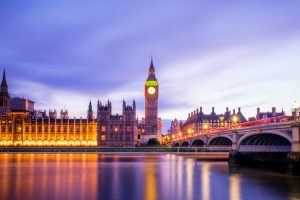In the King’s Speech in November 2023, the Government revealed that it would publish a Draft Rail Reform Bill during the forthcoming Parliamentary session,[1] which it did in February 2024. The fact that it is a draft Bill, and no more, was met with frustration from many in the rail industry.[2] No legislation on rail reform will be passed until at least the 2024-2025 Parliamentary session.
Attempts to reform Britain’s railways have been in the policy pipeline for at least six years. In September 2018, the government established a review of Britain’s railways chaired by Keith Williams, who has worked in senior roles for Royal Mail, John Lewis and British Airways.[3] The review was published in May 2021[4] and its findings informed the Government’s white paper, Great British Railways: The Williams-Shapps Plan for Rail, also published in May 2021.[5] The proposals in this white paper included:
- Creating a new public body, Great British Railways (GBR), to own infrastructure, receive fare revenue, run and plan the network, and set most fares and timetables.[6]
- Replacing the franchise system with new Passenger Service Contracts.[7]
- Simplifying the fares and ticketing system.[8]
- Establishing a new national brand and identity.[9]
However, progress on reform of the railways has been slow since the Williams-Shapps Plan was published. In the Queen’s Speech 2022, the Government announced that a Transport Bill would come before the House of Commons in the 2022-2023 Parliamentary session.[10] However, in October 2022, then Transport Secretary Anne-Marie Trevelyan confirmed to the Transport Committee that such a bill would not be forthcoming.[11] Meanwhile, the Government continued to state its support for the establishment of Great British Railways, and ran a competition to pick a town or city to host its headquarters.[12]
In the King’s Speech 2023, the much awaited Rail Reform Bill, which would lay the statutory basis for GBR, was announced, but only in a draft form.[13] The Government argued that this would give parliamentarians and experts across industry ‘the opportunity to review and test the legislation in draft’[14], but many Parliamentarians, including Conservative peer Lord McLoughlin and Shadow Transport Secretary Louise Haigh MP, expressed disappointment that the bill was only in draft form.[15]
As the bill is only in draft form, it will not be passed into law in the 2023-2024 Parliamentary session, and therefore almost certainly not before a general election. After three years of delay, the Government’s plan for widespread rail reform has come to very little. Rail reform has been the victim of changing priorities, due to Rishi Sunak’s premiership focussing on other policy areas, and the emergence of energy, NHS waiting lists, and illegal immigration as highly salient issues.
In addition, the Conservatives’ declining fortunes in the polls and two changes of Prime Minister have left the Government looking for policies that can deliver results or positive press coverage in the short term. Reform of the structure of the railways does not meet these criteria, and hence was ditched in favour of other policy announcements that could be summarised in a tweet or campaign leaflet, such as Network North.
The Labour Party’s own plans for the railways, which include gradual nationalisation through taking franchises into public ownership as contracts expire,[16] may require a different approach to legislation. A Labour Government will undoubtedly want to pass a bill which acts on its own vision of the railways, meaning the delays to rail reform will continue for the foreseeable future.
BREVIA CONSULTING PROVIDES STRAIGHTFORWARD POLITICAL ADVICE AND SUPPORT TO BUSINESSES AND ORGANISATIONS
Discover how Brevia can help you and your organisation by contacting the Brevia Team on 020 7091 1650 or contact@brevia.co.uk
[1] Prime Minister’s Office, 10 Downing Street, The King’s Speech 2023, 7 November 2023, p.37, link
[2] Rail Engineer, Rail Reform Bill – too little too late, 26 February 2024, link
[3] Department for Transport, Williams Rail Review, link
[4] Department for Transport, Williams Rail Review, 20 May 2021, link
[5] Department for Transport, Great British Railways: The Williams-Shapps Plan for Rail, 20 May 2021, p.7, link
[6] Department for Transport, Great British Railways: The Williams-Shapps Plan for Rail, 20 May 2021, p.7, link
[7] Ibid
[8] Ibid
[9] Ibid
[10] Prime Minister’s Office, 10 Downing Street, Queen’s Speech 2022, link
[11] Transport Committee, Oral evidence: Work of the Secretary of State for Transport, 19 October 2022, p.6 link
[12] Department for Transport, Public vote and official shortlist announced to choose home of Great British Railways, 5 July 2022, link
[13] Prime Minister’s Office, 10 Downing Street, The King’s Speech 2023, 7 November 2023, p.37, link
[14] Mark Harper MP, Hansard HCWS267, 20 February 2024, link
[15] The Guardian, Draft rail reform bill published ‘fittingly late’, Labour says, 20 February 2024, link
[16] LabourList, Haigh: “Labour in power will bring our railways back into public ownership”, 26 September 2022, link



